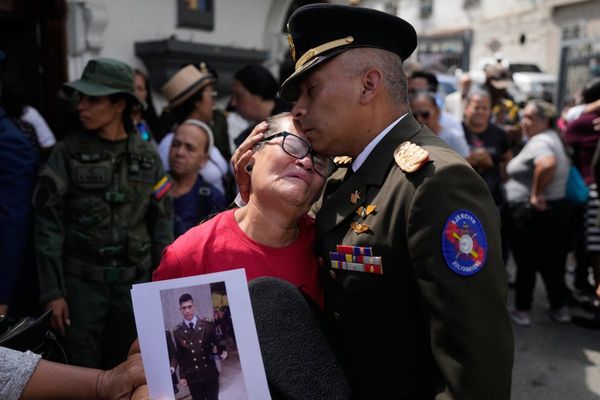For almost 50 years, Margie Webb cared for her daughter Edwina, who has Down syndrome, on their outback Queensland sheep station.
The family loved life on the land, but without any disability accommodation or respite care available in central west Queensland, they reluctantly packed their bags and moved to Brisbane late last year.
"There's really no support out there now, absolutely not," Ms Webb said.
"I would love to be in Longreach, my family have lived there forever, but we can't do that because there's nothing there for Edwina."
Ms Webb said disability support in central west Queensland had "gone backwards" under the National Disability Insurance Scheme (NDIS).
"Since NDIS arrived ... there is no overnight accommodation, there’s certainly never been any long-term accommodation, and there are no activities centre now and it’s really terrible," Ms Webb said.
"There are support workers who work with people in the town of Longreach during the day, but that’s not very practical for people who live out on properties or surrounding towns.”
'This is hurting me'
While the Webb family has left the region, others who remain say they have no options.
In the town of Isisford, an hour south of Longreach, Belinda Avery feels lonely.
"They shut me down all the time. Close me up in a little box. This is hurting me, looking at this life of mine," she said.
The 51-year-old, who has cerebral palsy, enjoys social activities such as going out to lunch, doing puzzles and spending time with other people her age.
Despite being an NDIS participant, those opportunities only come along a few times each year.
"I drive my scooter around. That gets really boring, driving around up and down," she said.
Ms Avery used to travel just one hour to Longreach, where Blue Care offered overnight accommodation, meals, and activities in the community.
But the service closed in March 2020, citing workforce pressures, and it hasn't reopened.
Now, the closest short-term accommodation and respite care is a 10-hour return trip away in Emerald.
"I don't like talking about Blue Care, that's really sad on me," Ms Avery said.
"That's not fair that closed up there.
"People like me, and somebody else I know, need to go somewhere. They've got nowhere to go."
A spokesperson for the National Disability Insurance Agency said it understood the challenges of finding support in rural and remote areas and was working to address market gaps.
For Ms Avery's mother Jocelyn, however, it is heartbreaking to see her daughter's needs are not being met.
"I understand how Belinda feels, but I'm handicapped as to what I can do because there isn't anywhere for Belinda to stay," Jocelyn Avery said.
"Nothing's changed much in the last 50 years.
"I think it's time that the government look at the situation out here and look at what they can do to provide better services with people with disabilities."
Ministers to visit Longreach
The federal NDIS Minister Bill Shorten and his Queensland counterpart Craig Crawford have pledged to visit Longreach at the end of September to address the lack of disability support in the bush.
"We have to be able to resolve what we call the thin markets in these country towns," Mr Crawford said.
"If we can make it work in Longreach, we can make it work across this country."
Mr Crawford said disability services in the bush have not matured as quickly as they should have under the NDIS.
"That's a problem, that's why now we're stepping in at higher level of government," he said.
"It doesn't mean that we're going to step in and operate those services, what we need to do is work out, why has no-one set up shop in Longreach, because there is a business waiting to happen."
Geoff Rowe from Aged and Disability Advocacy Australia said it was common to hear that people in regional and rural Australia had secured NDIS funding, but they could not get access to services.
"Rural communities really can't afford to lose people from their communities for a reason like this," Mr Rowe said.
"The funding of disability services in local communities not only makes sense for the individual, it also provides employment for others in the community and there's significant flow-on effects from that."







